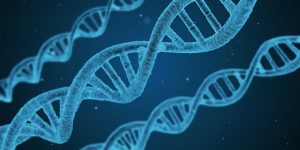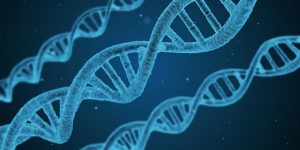 Many people have found that diets and one-size-fits-all advice don’t work for them. But now, researchers are turning to programs tailored to individuals based on their genes as a potential solution to the global obesity problem.
Many people have found that diets and one-size-fits-all advice don’t work for them. But now, researchers are turning to programs tailored to individuals based on their genes as a potential solution to the global obesity problem.
Background
Previous research into weight loss has been mostly based on conventional, one-size-fits-all advice for diet and physical activity. But there is limited evidence about whether a program tailored to a person’s genotype can provide additional benefits in improving obesity outcomes compared to conventional advice.
Genes can play a big role in obesity and associated factors. In particular, people with a homozygous fat-mass and obesity associated (FTO) gene weigh an average of 3kg more than those who with a lower risk variation. They also had a 1.7 fold higher chance of being obese.
The FTO susceptibility can be modulated by lifestyle factors including physical activity. But there is little evidence to show if individuals are more motivated when informed of their FTO gentoype.
The study
Participants were sourced from the Food4Me clinical trial, and were genotyped for FTO by researchers. They were randomly assigned to one of 4 intervention groups. Level 0 was a control group, given non-personalised advice on diet and exercise. Level 1 was given advice based on their current weight, diet and exercise regime. Level 2 was given advice given based on current weight, diet and exercise, and phenotype information such as cholesterol levels and waist circumference (WC).
Finally, Level 3 was given advice on their current weight, diet and exercise, phenotype, and specific genotype. These participants were informed of their risk for the FTO gene, as well as 4 other genes that could impact on diet, including MTHFR.
All of the research was conducted via the internet. Researchers monitored the participants’ progress, with participants self-reporting their height, weight and WC at baseline, and at 3 and 6 months.
The findings
The changes in obesity markers were greater in the Level 3 group compared to the Level 0 group, a non-personalised approach. However, there was no significant difference in markers between Level 3 and Level 1 or Level 2.
Within the Level 3 group, the average reduction in weight and WC by month 6 were greater for those with FTO than the non-carriers. The FTO carriers lost an average 22.28kg and 24.34cm WC over 6 months.
Conclusions
The researchers saw a greater reduction in both weight and WC in the risk carriers when they were informed of their risk. This suggests that people are more likely to take action if they know that they can personally benefit from diet and/or exercise.
However, the lack of difference between groups 1, 2 and 3 suggest that the real power lies in getting personalised advice, rather than the specific genes involved. Tailoring advice to the individual’s situation does not seem to improve with the additional of genetic information.
This suggest that for the most effective weight loss, individuals should look to seeking out advice that is personalised to their current situation, goals and preferences.
References
Celis-Morales, C., Marsaux, C.F., Livingstone, K.M., Navas-Carretero, S., San-Cristobal, R., Fallaize, R., Macready, A.L., O’Donovan, C., Woolhead, C., Forster, H. and Kolossa, S., 2017. Can genetic-based advice help you lose weight? Findings from the Food4Me European randomized controlled trial. The American journal of clinical nutrition, 105(5), pp.1204-1213.

